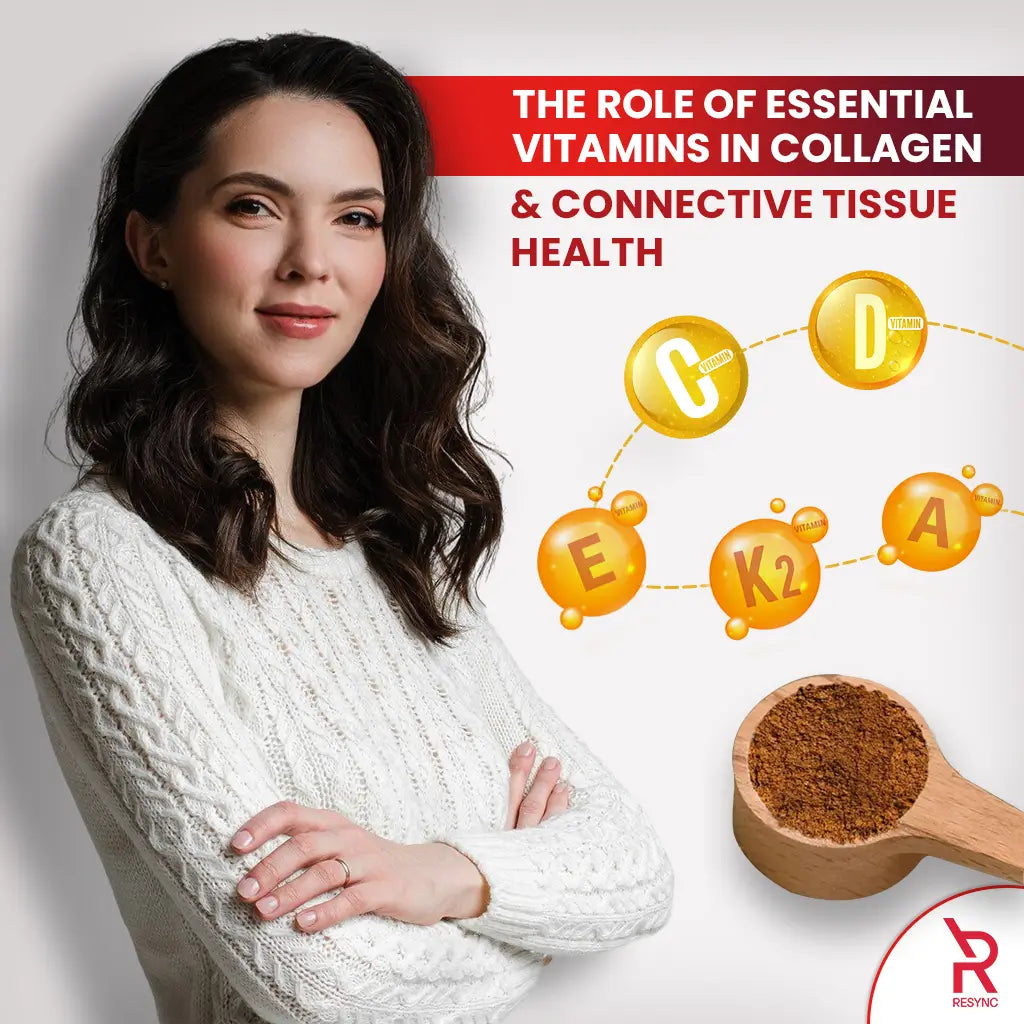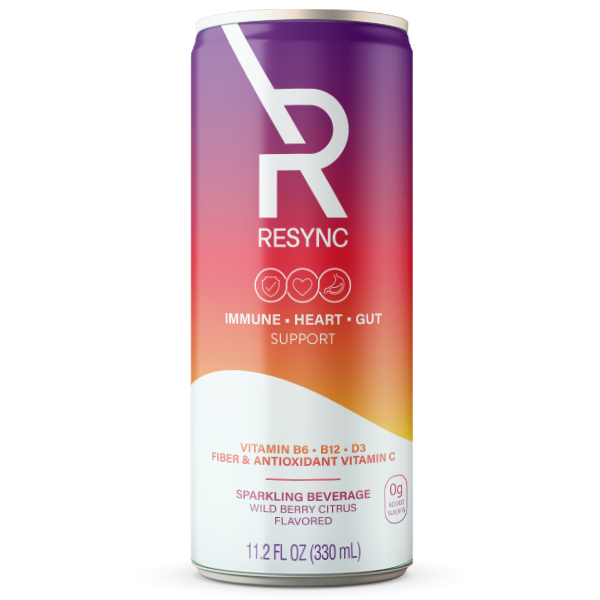
The Smarter Protein:
Collagen or Whey - What’s Better After 40?
You probably already know that protein is a major component of the human body.As we age, we need protein to maintain the strength and elasticity of every structure - skin, fascia, muscles, tendons, ligaments, cartilage, and bones. Otherwise, we become stiffer and weaker.
But is one protein better and more important than the other?
This blog will guide you step by step through scientific comparison, addressing each protein's unique benefits. You will know what’s best for you.
Understanding Whey Protein
Whey protein is one of the most studied and widely used nutritional supplements globally, frequently used among bodybuilders, athletes, fitness enthusiasts, and any adults seeking to support muscle growth.
What makes it so valuable for your muscles?
- Whey protein gives you essential amino acids (EAAs) and branched-chain amino acids BCAAs.
- There are 20 amino acids in total. Out of the 20 amino acids that make up proteins, your body cannot synthesize 9 of them, meaning you must obtain them from your diet, and these are called essential amino acids.
- Now, inside those 9 EAAs, there are 3 special ones called Branched-Chain Amino Acids (BCAAs):
- Leucine
- Isoleucine
- Valine
And they’re extra important for muscle growth & repair. That’s why whey protein is an excellent choice for muscle building.
However, when we look at building strength, we need to look into the fact that muscle function requires integrating the role of Fascia—a multilayered connective tissue system enveloping and interconnecting muscles. This perspective shifts the focus from viewing muscles as isolated units to recognizing them as components of a bigger holistic system.
The research indicates that Fascia can contract in a smooth muscle-like manner, impacting muscle tension, movement patterns, and force transmission (PubMed)
Therefore, when discussing muscle function and what we need nutritionally to keep them strong, it is imperative to consider the role of Fascia, which contributes significantly to movement efficiency, coordination, and overall musculoskeletal health.
Therefore, whey protein alone will have limitations, especially if you are looking for a complete protein that supports the entire musculoskeletal system (fascia and muscle) since fascia needs different protein support than muscle. Fascia is ~70% made of collagen.
But for now, let’s mention the major benefits of whey protein.
Key Benefits of Whey Protein:
- Muscle Strength & Repair: Numerous studies confirm whey protein effectively stimulates muscle growth and accelerates recovery, particularly post-exercise (Science Direct)
- Weight & Appetite Management: Whey enhances satiety, reduces hunger hormones like ghrelin, and promotes fat loss, contributing significantly to weight management strategies (PubMed Central).
- Immune System Support: Whey protein contains lactoferrin and immunoglobulins, providing vital support for immune health (Science Direct).
Understanding Collagen Protein
Just like whey protein is one of the most studied nutritional supplements globally, collagen protein is one of the most misunderstood supplements.
What's a better source, marine collagen or bovine?
What's better? Bone Broth or Collagen Peptides?
What do you need to make collagen & keep all connective tissues healthy?
You can also read one of my recent blogs on what vitamins you need to take with collagen protein.


If you decide just to read this blog, allow me to share the most critical information here.
Scientists have discovered 28 different types of collagen in the human body.
However, collagen type I makes up about 90% of the total collagen in the human body, making it the most abundant type of collagen we need for skin and fascia elasticity, tendon, ligaments, and bone strength.
It’s composed of many key amino acids (watch video), and it is predominantly high in glycine, proline, and hydroxyproline, essential for every single layer in your body.
Even though muscle needs only 6% of collagen, everything around it (including fascia) needs collagen to stay elastic and strong (see below).

Key Benefits of Collagen Protein:
- Joint Pain Reduction & Mobility Improvement: Clinical studies show collagen peptides effectively alleviate joint discomfort and enhance mobility, particularly beneficial for adults over 40 dealing with osteoarthritis (Osteoarthritis and Cartilage).
- Skin Elasticity & Anti-aging: Best Collagen supplements notably enhances skin elasticity, hydration, and visibly reduces fine lines and wrinkles. A 2021 meta-analysis supported these findings, particularly when collagen is paired with vitamin C (Journal of Cosmetic Dermatology).
- Bone Density Enhancement: Collagen supplementation combined with resistance training significantly improves bone density and lean body mass, particularly critical during and after menopause (Nutrients).
Whey vs. Collagen: Quick Comparison
Whey Protein:
Provides all essential amino acids (EAAs) and branched-chain amino acids (BCAAs) vital for muscle protein synthesis. What’s important to note is that when you only take whey protein within 60 minutes post-workout, the key amino acid glycine that keeps your tendons healthy goes down (if you are interested to learn more watch our class). Tendon is 40% made of glycine, so you need that amino acid post-training to keep your tendons and ligaments healthy. Remember, collagen protein is high in glycine.
Collagen Peptides:
Primarily contain non-essential amino acids crucial for all connective tissues. It is very rich in glycine, proline, and hydroxyproline, crucial for:
- Joint health
- Fascia, ligaments, tendons strength
- Skin elasticity
- Bone matrix
Here’s a simplified comparison highlighting key areas relevant to adults over 40:
| Aspect | Whey Protein | Collagen Peptides |
|---|---|---|
| Muscle Building | Highly Effective (source) | Moderate Effectiveness (source) |
| Joint Health | Limited Direct Benefit | Highly Effective (source) |
| Skin Health | Minimal | Highly Effective (source) |
| Bone Density | Moderate Benefit | Significant Benefit (source) |
| Immune Support | Strong (source) | Minimal Benefit |
Debunking Common Myths
Myth 1: "Collagen is Only Good for Skin"
Truth: Collagen peptides offer far-reaching benefits beyond the skin. Numerous studies confirm collagen supports the most important connective tissue in our body - fascia, which holds everything between the skin and bone strong, allowing joints to stay mobile and healthy, enhancing bone integrity and muscle recovery, and effectively addressing age-related physical changes. See below, how much collagen each layer of our body needs to stay strong.

Myth 2: "Whey Protein is Just for Bodybuilders"
Truth: Whey protein supports not only weight lifters or fitness competitors to showcase their muscle strength, but anyone seeking optimal health through improved muscle mass, better weight management, and immune system strength (source). The unfortunate part is that the supplement business gave this protein a bad reputation, as many companies add artificial flavors to their product to make them taste good, and with additional fillers, these products become more damaging than beneficial to the body. Be aware and read the label and the other ingredients underneath the supplement facts panel to double check what you take.
The Protein Shift We Need After 40
As a forward-thinking person, I feel you want to stay active on the golf course, tennis, pickleball court, or simply enjoy life on your terms.
And in that case, it is time to shift your thinking because your *body isn't just made of muscle—it's a complex, multilayered system of blood, fascia tissue, ligaments, tendons, skin, and bones that all need targeted protein support.
Relying on whey protein alone is outdated thinking.
Imagine swinging a golf club without shoulder tightness, playing a full tennis match without aching knees, or recovering faster from a muscle sprain or strain.
That's the power of combining collagen + whey protein—you're not just maintaining muscle, you're future-proofing your whole body.
In today’s world, it's not whey versus collagen—it’s whey plus collagen if you want to move pain-free into your 50s, 60s, and beyond.
The smartest strategy combines both proteins:
- Whey Protein: Essential for maintaining muscle strength, especially during periods of sarcopenia (age-related muscle loss) (PubMed).
- Collagen Protein: Critical for entire joint health, skin, fascia elasticity, and bone integrity—especially for menopausal women facing accelerated bone density loss (PubMed).
- For Men: From above research, you can tell that whey protein is crucial to combat age-related muscle loss (sarcopenia), enhancing muscle strength, metabolism, and overall physical stamina. Yet, collagen supplementation becomes an essential addition to even improve muscle performance since the connective tissue, the fascia that surrounds your muscles and allows them to glide, is ~70% made of collagen protein. Therefore, with collagen protein, you support the entire myofascial (muscle & fascia) unit and reduce injury risk, as every connective and soft tissue around your muscles and joints needs collagen protein, anywhere between 70-90% (see above image). And collagen protein, just like flexibility, decreases after 40. That’s why you need collagen protein in your diet.
- For Women: Women often focus on the external benefits collagen offers, like improving skin elasticity and reducing visible signs of aging, yet we should not forget that collagen also enhances the elasticity and resilience of fascia which is a critical connective tissue that allows joint stability and strengthens the bones—during menopause when accelerated bone density loss takes place. Simultaneously, just like with men, whey protein supports muscle strength, metabolic health, weight management, and overall daily vitality.
Therefore, integrating both whey and collagen protein into your daily nutritional strategy is essential for balanced support and active aging after 40.
Get the Best of Both Worlds With Resync - New Power Move After 40
Beyond Muscle Recovery & Repair: The Ultimate Complete Protein Blend + More
Beyond Muscle Recovery & Repair offers a premium formula combining 11g premium collagen peptides and 11g whey protein with required essential vitamins, minerals, electrolytes, red and more - provides comprehensive health benefits with one scoop:
- Muscle + Connective Tissues & Joint Support
- Anti-Inflammatory Response Post Physical Activity
- Rehydration & Energy Recovery
- Circulation & Heart Health

Use Code BLOG2025– Save 15%
Optimal Dosage & Best Practices
Whey Protein:
- Recommended dosage: 20–30 grams post-exercise or as meal replacement (source). Remember, when you take whey protein within 60 min post workout, you decrease Glycine amino acid, which is essential to tendon health (tendon is 40% made of glycine) that’s why it is essential to take whey with collagen protein - high in glycine.
Collagen Peptides
Final Thoughts
After 40, it’s all about fueling your body smarter to age actively on your terms.
Whey and collagen protein each play a vital role in supporting how you look, feel, and move. While whey is essential for muscle strength and repair, collagen targets everything around it - your joints, fascia, skin, and connective tissue—the parts that often start to whisper (or shout) after 40.
But this isn’t about choosing one or the other.
In today’s world, it’s not whey versus collagen—it’s whey plus collagen if you want to move well into your 50s, 60s, and beyond without stiffness, strain, or setbacks. That’s the smarter approach to aging actively.
Beyond Muscle Recovery & Repair blend offers both proteins with much more to deliver full-body support, so you can keep doing the things you love—stronger, longer, and with fewer limitations.
Subscribe and never miss out!
Resync is backed by research. We break down complex science into practical takeaways you can use today. When you have the right information, you are empowered to make the decision that’s right for you. If there’s something you want to know more about, let us know by leaving a comment, contacting us or getting in touch on social media!
Helping you lead a healthier life,The Resync Team

JOIN OUR NEWSLETTER
Stay up to date with the latest science-backed data, receive expert knowledge, and healthy inspiration for you and your family.
Get 15% Off Your Order When You Sign Up For Our Newsletter
Save 20% Off All Resync Products
Use Code: BLOG2021
Shop Now








